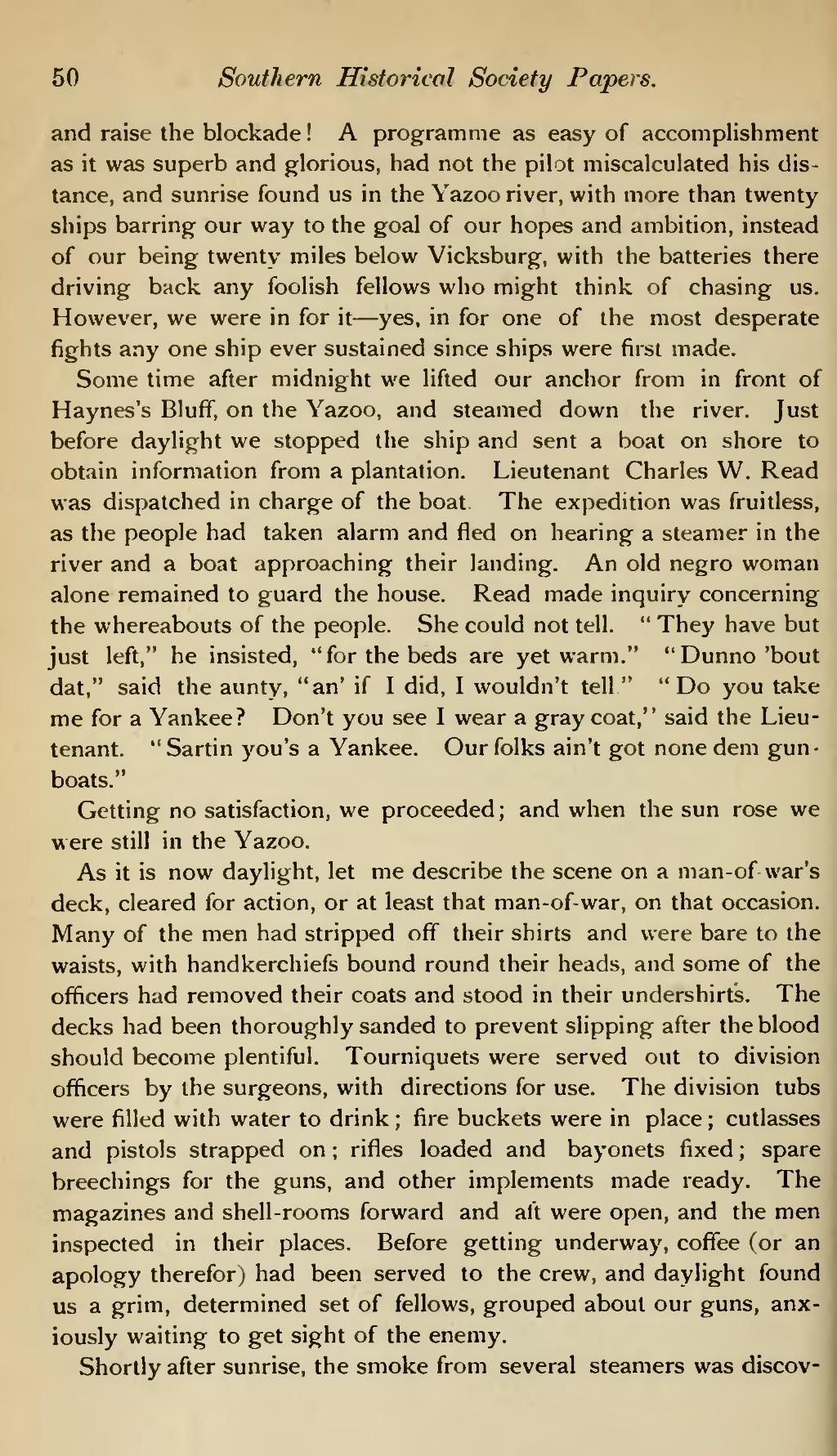50 Southern Historical Society Papers.
and raise the blockade ! A programme as easy of accomplishment as it was superb and glorious, had not the pilot miscalculated his dis- tance, and sunrise found us in the Yazoo river, with more than twenty ships barring our way to the goal of our hopes and ambition, instead of our being twenty miles below Vicksburg, with the batteries there driving back any foolish fellows who might think of chasing us. However, we were in for it — yes. in for one of the most desperate fights any one ship ever sustained since ships were first made.
Some time after midnight we lifted our anchor from in front of Haynes's Bluff", on the Yazoo, and steamed down the river. Just before daylight we stopped the ship and sent a boat on shore to obtain information from a plantation. Lieutenant Charles W. Read was dispatched in charge of the boat. The expedition was fruitless, as the people had taken alarm and fled on hearing a steamer in the river and a boat approaching their landing. An old negro woman alone remained to guard the house. Read made inquiry concerning the whereabouts of the people. She could not tell. " They have but just left," he insisted, "for the beds are yet warm." "Dunno'bout dat," said the aunty, "an' if I did, I wouldn't tell" "Do you take me for a Yankee? Don't you see I wear a gray coat," said the Lieu- tenant. "Sartin you's a Yankee. Our folks ain't got none dem gun- boats."
Getting no satisfaction, we proceeded ; and when the sun rose we were still in the Yazoo.
As it is now daylight, let me describe the scene on a man-of war's deck, cleared for action, or at least that man-of-war, on that occasion. Many of the men had stripped off" their shirts and were bare to the waists, with handkerchiefs bound round their heads, and some of the officers had removed their coats and stood in their undershirts. The decks had been thoroughly sanded to prevent slipping after the blood should become plentiful. Tourniquets were served out to division officers by the surgeons, with directions for use. The division tubs were filled with water to drink ; fire buckets were in place ; cutlasses and pistols strapped on ; rifles loaded and bayonets fixed ; spare breechings for the guns, and other implements made ready. The magazines and shell-rooms forward and aft were open, and the men inspected in their places. Before getting underway, coff"ee (or an apology therefor) had been served to the crew, and daylight found us a grim, determined set of fellows, grouped about our guns, anx- iously waiting to get sight of the enemy.
Shortly after sunrise, the smoke from several steamers was discov-
